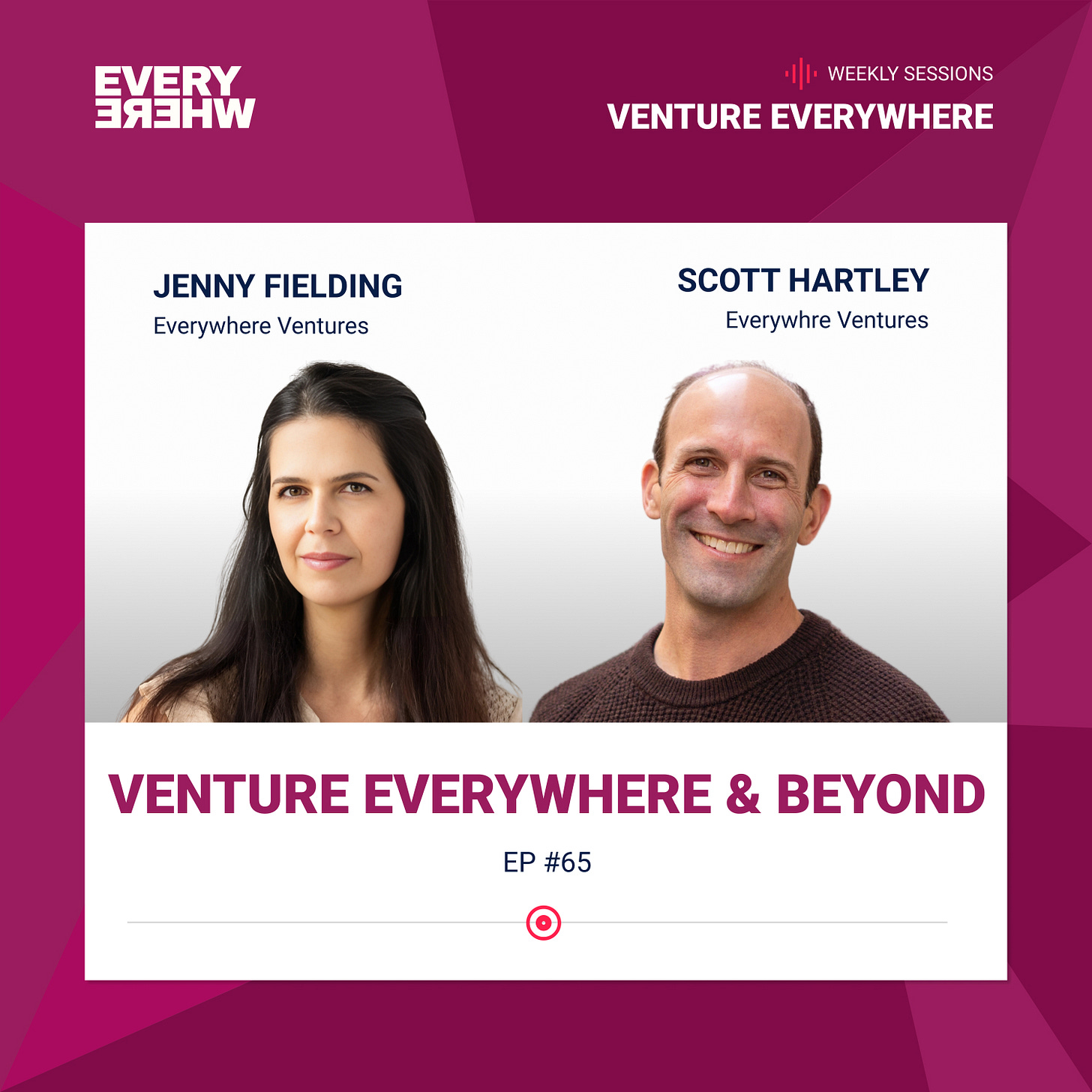Forbes Names the Three Most Active Early-Stage Fintech Investors—And Why Everywhere Ventures Is One to Watch
Christer Holloman of Forbes sits down with Scott Hartley, and other VCs, to understand what top early-stage investors are looking for today
Despite a two-and-a-half-year “downturn” in fintech, investors are still deploying capital at scale—averaging $7 billion per quarter. In Q4 2024 alone, fintech funding grew 17% year-over-year. According to a new Forbes article, the trend is clear: fewer deals, but bigger bets.
While Y Combinator tops the list as the most active early-stage fintech investor in the U.S., according to PitchBook data, traditional VC firms and blockchain-focused funds are holding strong. Notable names include Techstars and Plug and Play, as well as Alumni Ventures, Everywhere Ventures, and crypto-forward firms like Hack VC, MH Ventures, and Robot Ventures.
Forbes recently spotlighted three of these standouts—Alumni Ventures, Hack VC, and Everywhere Ventures —to uncover what’s driving their activity and what they’re looking for in this evolving fintech landscape.
Everywhere Ventures: Betting on a Global, Founder-First Future
Scott Hartley, co-founder and managing partner of Everywhere Ventures, has built a VC firm rooted in global community and founder-first values. Originally launched in New York City to fill a gap in early-stage funding, the firm has since grown into a distributed network of investors and entrepreneurs across 30 countries and over 300 portfolio companies.
Unlike traditional VC funds, Everywhere Ventures pools capital from experienced founders and operators, then centrally deploys it into pre-seed startups. Hartley and co-founder Jenny Fielding write checks ranging from $50K to $250K, focusing on what they call the “table stakes economy”—fintech, healthcare, future of work, and infrastructure.
“We started Everywhere in response to a lack of pre-seed funding in NYC,” Hartley explained to Forbes. “And once COVID hit, we leaned into our global reach to back great founders wherever they’re building.”
In fintech, the firm targets high-impact areas like digital identity, fraud prevention, embedded finance, and payments infrastructure. Notably, it has invested in companies like Smile ID, an African-based identity management startup, with broader experience supporting KYC and cybersecurity solutions around the world.
Hartley also emphasized the importance of speed and transparency in founders' fundraising efforts, noting that most of their deals come via warm referrals: “How you run your fundraise reflects how you run your company.”
Alumni Ventures: Democratizing Access to VC
Founded by Mike Collins in 2013, Alumni Ventures has become one of the most active VC firms in the world. With nearly $1.5 billion raised from over 11,000 individual investors, it has deployed capital into more than 1,400 companies through a co-investment model. The firm partners with top-tier investors like Sequoia and invests $250–300M annually.
Collins believes that fintech’s future lies in disintermediation, decentralization, and blockchain. His advice to founders? Get a warm intro. “Fundraising is a structured process. Persistence, preparation, and relationships matter,” he said.
Hack VC: All-In on Crypto’s Future
Ed Roman, managing partner at Hack VC, has taken a conviction-driven approach to early-stage crypto investing. The firm has backed more than 200 companies and has been among the most active crypto VCs globally. Hack VC is known for leading deals in projects like Movement, Berachain, and Babylon—protocols focused on blockchain infrastructure, DeFi, and crypto security.
Roman sees long-term opportunity in crypto-AI convergence and DeFi primitives. With a deeply technical team and strong inbound deal flow, Hack VC prioritizes founders building for real utility—not hype. “After FTX, the tourists left,” Roman told Forbes. “Now it’s mission-driven builders—and we’re here for it.”
The Takeaway: Three Models, One Mission
As the fintech sector shifts toward fewer but larger deals, investors like Hartley, Collins, and Roman are reshaping the early-stage landscape. Each firm has a distinct model—global community, retail access, or crypto conviction—but all share a belief in the resilience and reinvention of financial systems.
And as Forbes rightly notes, Scott Hartley and Everywhere Ventures stand out not just for their activity, but for the ethos behind it: a belief that global, founder-led innovation will define the next decade of fintech.
Read more on Forbes
Listen to Scott Hartley interview Jenny Fielding about her debut book Venture Everywhere, on a special episode Venture Everywhere and Beyond. Now on Apple & Spotify and check out all our past episodes here!


